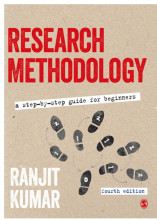Summary: Navigating The Anthropocene: Improving Earth System Governance
- This + 400k other summaries
- A unique study and practice tool
- Never study anything twice again
- Get the grades you hope for
- 100% sure, 100% understanding
Read the summary and the most important questions on Navigating the Anthropocene: Improving Earth System Governance
-
1 Introduction
This is a preview. There are 3 more flashcards available for chapter 1
Show more cards here -
What do Biermann et al. explain about the challenges of the Anthropocene in their introduction?
Researchers established that human activities are significantly impacting several global sub-systems. But now societies must change their course and steer away from critical tipping points in the Earth system that might lead to rapid and irreversible change -
What do Biermann et al. see as a requirement for steering away from critical environmental tipping points?
The design of more effective earth system governance and planetary stewardship through reorienting and restructuring national and international institutions. Involving both the public and the private sector.
Incremental change is no longer sufficient. -
Biermann et al. propose a new institutional framework. Which seven reform measures or building blocks do they describe as a necessary first step towards such an institutional framework?
1. Upgrading the UN environmental programme
2. Creating a high-level UN sustainable development council
3. The closing of regulatory gaps at the global level by governments (international institutional arrangement such as multilateral treaties)
4. Governments placing a stronger emphasis on planetary concerns in economic governance
5. Increase the use of qualified majority voting (weigthed voting mechanisms)
6. Ensure greater transparancy and accountability of intergovernmental institutions
7. Equity and fairness should be emphasised, strong financial support for poorer countries. -
Why is it important the UN environmental programme is upgraded to a UN specialised agency for environmental protection according to Biermann et al.?
It would be stronger in that it would have a sizable role in agenda setting, norm-development, compliance management, science assessment and capacity building. -
Why should de Commission on Sustainable Development (CSD) be replaced with a high-level UN Sustainable Development Council according to Biermann et al.?
Because it would stand much higher in the international institutional hierarchy. Therefore, the integration of social, economic and environmental pillars of sustainable development from global to local levels would gain political priority. The current CSD lacks political relevance to effectively forward this agenda. -
What do Biermann et al. see as the best way to arrange representation within the UN sustainable development council they propose?
A predominant position (at least 50% of the council) for the largest economies -the group of 20- (who represent 2/3 of the worlds population and 90% of the global gross national product), rather than the more traditional geographic representatieon. -
Which example do Biermann et al. give for an area that is in need of stronger international regulation?
The development and deployment of emerging technologies. For example nanotechnology and geo-engineering. As they could pose a risk for sustainable development despite the promising benefits of such technologies. -
What is a tool Biermann et al. proposes that promotes the emphasis on planetary concerns in economic governance?
Discrimination in world trade laws in favor of products and services that have been produced in a more sustainable way. -
What is the benefit of making use of a weighted voting system on international level, particularly on issues regarding the Earth system?
Bypass the lowest common denominator issue. Therefore: a quicker way towards more far reaching decisions and international norm-setting. -
Why do Biermann et al. deem the promotion of transparency and accountability in intergovernmental organisations so important?
Intergovernmental organisations such as UN institutions are dominated by international and domestic bureaucracies at the cost of national parliaments and the direct involvement of citizens. Therefore, they lack accountability incentives, which could promote corruption and misuse of power.
- Higher grades + faster learning
- Never study anything twice
- 100% sure, 100% understanding






























